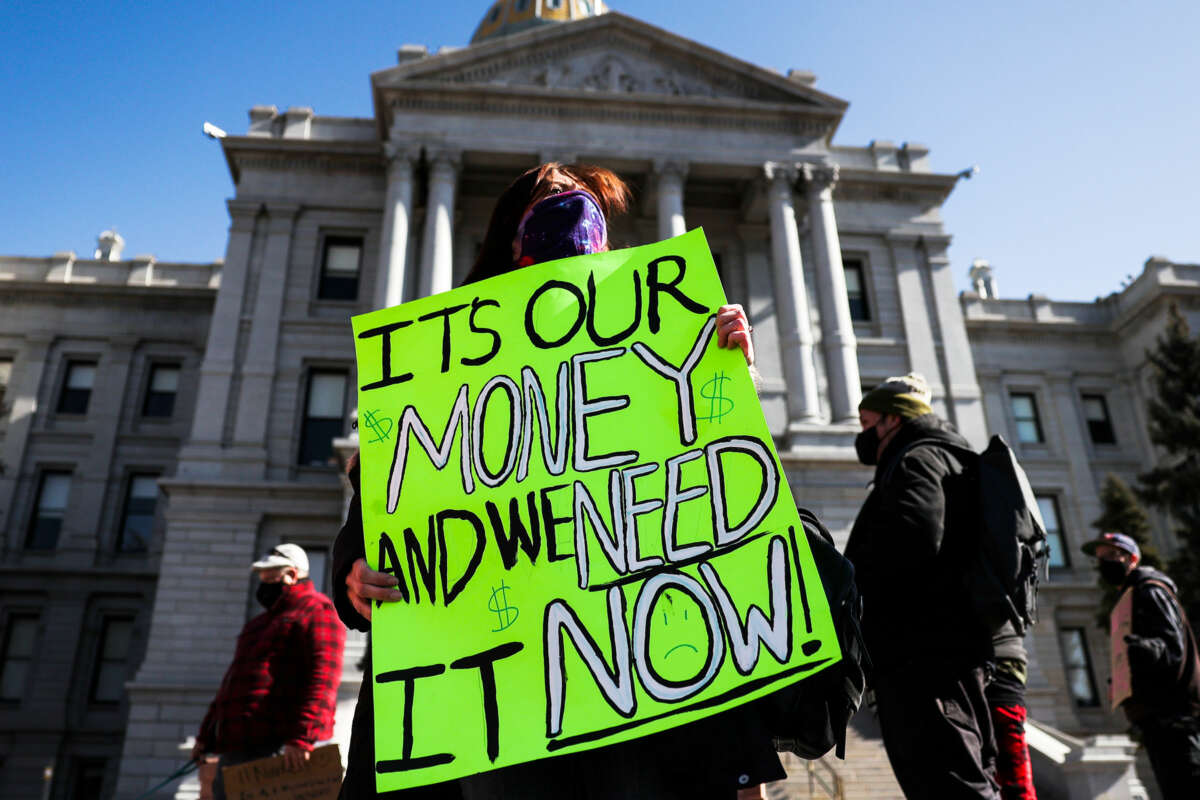As of Wednesday, around 30 million people across the United States will have their family’s food assistance slashed, despite high prices and expert warnings about a “hunger cliff.”
Supplemental Nutrition Assistance Program (SNAP) benefits were initially increased at the beginning of the Covid-19 pandemic. Although Republicans in 18 states had already ended the emergency allotments (EAs), households in the other 32 states along with Washington, D.C., Guam, and the U.S. Virgin Islands have continued to receive them.
However, the increased SNAP benefits are set to end Wednesday because of the omnibus spending package from December — federal lawmakers traded the temporary pandemic-era boost for a permanent program to feed children in the summer.
“We’re really going to struggle,” Deanna Hardy, a mother of two in Marshfield, Wisconsin, told ABC News. “We’re going to have to end up going back to cheaper items like noodles and processed stuff because the meat, the dairy, fruits, and veggies. It’s expensive.”
“I don’t think the cuts could have happened at a worse time,” added Hardy — whose family relies on a fixed income and will see their benefits drop from $960 to $200 per month. “When the extra payments began, food prices were nowhere near where they are now.”
As Tracy Roof, an associate professor of political science at the University of Richmond, recently wrote for The Conversation:
Many advocates for a stronger safety net say that SNAP benefits are too low to meet the needs of low-income people. They are warning of a looming hunger cliff — meaning a sharp increase in the number of people who don’t get enough nutritious food to eat — in March 2023, when the extra help ends.
At that point, the lowest-income families will lose $95 in benefits a month. But some SNAP participants, such as many elderly and disabled people who live alone and on fixed incomes and who only qualify for the minimum amount of help, will see their benefits plummet from $281 to $23 a month.
A trio of Center on Budget and Policy Priorities (CBPP) experts pointed out earlier this month that “a study estimated that EAs kept 4.2 million people above the poverty line in the last quarter of 2021, reducing poverty by 10% ― and child poverty by 14% ― in states with EAs at the time. The estimated reduction in poverty rates due to EAs was highest for Black and Latino people.”
CBPP president Sharon Parrott warned Axios Tuesday that the cuts will “allow very high levels of poverty to remain in the country.”
Noting the outlet’s report, Public Citizen President Robert Weissman declared that “a decent society would not let this happen.”
The looming cuts are a reminder that “poverty is a policy choice in this country,” Elizabeth Lower-Basch, deputy executive director for the Center for Law and Social Policy, told Axios. “For a while, we decided we were going to make a different policy choice.”
Congressional Progressive Caucus Chair Pramila Jayapal (D-Wash.) agreed and demanded action by federal lawmakers.
“Tomorrow, SNAP benefits will drop back to pre-pandemic levels,” she tweeted. “That means $171 less each month for 520,000 Washington families struggling to make ends meet. Ending these increased benefits will cause more food insecurity and poverty.”
“It’s unacceptable,” Jayapal added. “Poverty and hunger are policy choices. It’s time we step up and do more.”
Join us in defending the truth before it’s too late
The future of independent journalism is uncertain, and the consequences of losing it are too grave to ignore. To ensure Truthout remains safe, strong, and free, we need to raise $33,000 in the next 2 days. Every dollar raised goes directly toward the costs of producing news you can trust.
Please give what you can — because by supporting us with a tax-deductible donation, you’re not just preserving a source of news, you’re helping to safeguard what’s left of our democracy.
